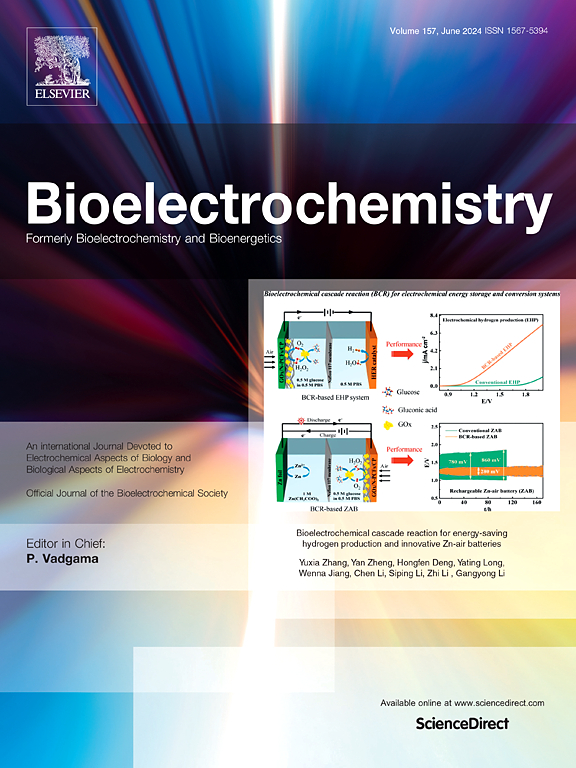Emotional comorbidities in epilepsy result from seizure-induced corticosterone activity
IF 3.6
2区 医学
Q1 NEUROSCIENCES
引用次数: 0
Abstract
People with epilepsy often have psychiatric comorbidities that can significantly impair their quality of life. We previously reported that repeated seizure activity persistently alters endocannabinoid (eCB) signaling in the amygdala which accounts for comorbid emotional dysregulation in rats, however, the mechanism by which these alterations in eCB signaling within the epileptic brain occur is unclear. Endocannabinoid signaling is influenced by corticosterone (CORT) to modulate cognitive and emotional processes and a hyperactive hypothalamic-pituitary-adrenal (HPA) axis occurs in both people with epilepsy and nonhuman animal models of epilepsy.
We employed selective pharmacological tools and a variety of approaches including whole-cell patch-clamp electrophysiology, behavioural paradigms and biochemical assays in amygdala kindled adult male Long-Evans rats. We aimed to determine whether seizures induce hypersecretion of CORT and the role this plays in eCB system dysregulation, impaired fear memory, and anxiety-like behaviours associated with seizure activity.
Plasma CORT levels were significantly and consistently elevated following seizures over the course of kindling. Pre-seizure administration with the CORT synthesis inhibitor metyrapone prevented this seizure-induced CORT increase, prevented amygdala anandamide downregulation, and synaptic alteration induced by seizure activity. Moreover, treatment with metyrapone or combined glucocorticoid receptor (GR)/mineralocorticoid receptor (MR) antagonists prior to each elicited seizure were equally effective in preventing chronically altered anxiety-like behaviour and fear memory responses.
Inhibiting seizure-induced corticosterone synthesis, or directly blocking the effects of CORT at GR/MR prevents deleterious changes in emotional processing and could be a treatment option for emotional comorbidities in epilepsy.
癫痫患者的情感并发症源于癫痫发作引起的皮质酮活动
癫痫患者往往合并有精神疾病,这会严重影响他们的生活质量。我们以前曾报道,反复发作的癫痫活动会持续改变杏仁核中的内源性大麻素(eCB)信号传导,从而导致大鼠合并情绪失调,然而,癫痫患者大脑中 eCB 信号传导发生改变的机制尚不清楚。内源性大麻素信号传导受皮质酮(CORT)的影响,可调节认知和情绪过程,癫痫患者和非人类癫痫动物模型都会出现下丘脑-垂体-肾上腺(HPA)轴亢进。我们的目的是确定癫痫发作是否会诱发 CORT 分泌过多,以及这在 eCB 系统失调、恐惧记忆受损和与癫痫发作活动相关的焦虑样行为中所起的作用。癫痫发作前服用CORT合成抑制剂甲萘醌可防止癫痫发作引起的CORT升高,防止杏仁核anandamide下调和癫痫活动引起的突触改变。此外,在每次诱发癫痫发作前使用甲泼尼龙或糖皮质激素受体(GR)/矿质皮质激素受体(MR)联合拮抗剂治疗,对防止长期改变的焦虑样行为和恐惧记忆反应同样有效。
本文章由计算机程序翻译,如有差异,请以英文原文为准。
求助全文
约1分钟内获得全文
求助全文
来源期刊

Neurobiology of Stress
Biochemistry, Genetics and Molecular Biology-Biochemistry
CiteScore
9.40
自引率
4.00%
发文量
74
审稿时长
48 days
期刊介绍:
Neurobiology of Stress is a multidisciplinary journal for the publication of original research and review articles on basic, translational and clinical research into stress and related disorders. It will focus on the impact of stress on the brain from cellular to behavioral functions and stress-related neuropsychiatric disorders (such as depression, trauma and anxiety). The translation of basic research findings into real-world applications will be a key aim of the journal.
Basic, translational and clinical research on the following topics as they relate to stress will be covered:
Molecular substrates and cell signaling,
Genetics and epigenetics,
Stress circuitry,
Structural and physiological plasticity,
Developmental Aspects,
Laboratory models of stress,
Neuroinflammation and pathology,
Memory and Cognition,
Motivational Processes,
Fear and Anxiety,
Stress-related neuropsychiatric disorders (including depression, PTSD, substance abuse),
Neuropsychopharmacology.
 求助内容:
求助内容: 应助结果提醒方式:
应助结果提醒方式:


